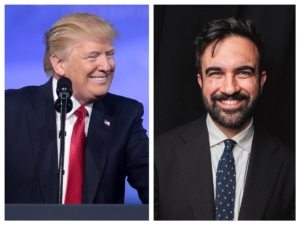Hundreds of National Guard troops are being pulled back from Chicago and Portland as federal officials quietly scale down one of President Donald Trump’s most disputed domestic initiatives. A defense official said Monday that service members still assigned to those cities will continue operating away from public streets while legal fights over the administration’s authority continue.
The recalibration affects Guard units originally dispatched from California and Texas. According to the official, who requested anonymity because they were not cleared to comment publicly, the drawdown reflects a broader shift in how the administration is managing its deployments linked to Trump’s immigration crackdown in Democratic-led cities.
U.S. Northern Command confirmed the broader shift in a Sunday statement, saying it was “shifting and/or rightsizing” its presence in Portland, Los Angeles and Chicago. The command also said a “constant, enduring, and long-term presence in each city” would remain.
Under the updated plan, about 200 California National Guard troops currently stationed in Oregon will soon head home, leaving roughly 100 personnel in the Portland area for training purposes. Oregon’s own National Guard contingent will also be trimmed from 200 to 100 members.
In Chicago, around 200 Texas National Guard troops are preparing to return to their home state. Another 200 soldiers will stay on standby at Fort Bliss, the Army installation spanning parts of Texas and New Mexico. Illinois will keep about 300 of its Guard members in the Chicago region for training, though they are not legally permitted to conduct joint missions with the Department of Homeland Security, AP reported.
The defense official indicated that the approaching holiday season may have influenced the altered posture.
California officials quickly welcomed the reductions. Diana Crofts-Pelayo, a spokesperson for Gov. Gavin Newsom, said Trump “never should have illegally deployed our troops in the first place.” In an email she added, “We’re glad they’re finally coming home. It’s long overdue!”
Cities targeted by the administration have continued to mount legal resistance. Chicago has a separate challenge pending before the U.S. Supreme Court, arguing that Trump has not met the legal standard required for deploying troops and that doing so undermines state authority.
READ ALSO: After Portland win, Illinois fights Trump’s move to send National Guard troops to Chicago
Portland notched a significant victory this month when U.S. District Judge Karin Immergut issued a permanent injunction blocking the deployment. The judge ruled that the administration had not demonstrated a legal basis for using troops there. The Justice Department responded Sunday with an emergency motion seeking to freeze the decision while it appeals.
The reshuffling comes as the administration pushes ahead with immigration enforcement in other regions, including an escalated operation in Charlotte, North Carolina, backed by U.S. Customs and Border Protection.
National Guard deployments have grown into one of the defining flashpoints of Trump’s second term, emphasizing his readiness to use military resources for domestic objectives. Earlier this year, active-duty Marines and Guard units were mobilized in Los Angeles during immigration-related protests. Troops were also positioned in Washington, D.C., as part of a broader federal intervention that the president argued was necessary due to crime concerns. Subsequent expansions placed Guard members in Portland and Chicago.
While Guard members have not been assigned direct policing duties, they continue to guard federal sites, especially those operated by U.S. Immigration and Customs Enforcement. In Los Angeles, about 100 troops will remain on deployment, the defense official said.
READ ALSO: Trump’s Oregon National Guard deployment blocked temporarily by federal court ruling










